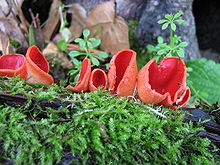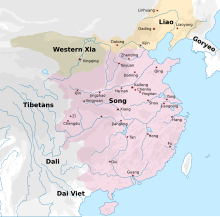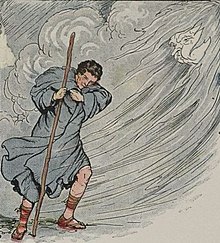Portal:Science
Science portal

Science is a systematic discipline that builds and organises knowledge in the form of testable hypotheses and predictions about the universe. Modern science is typically divided into two or three major branches: the natural sciences (e.g., physics, chemistry, and biology), which study the physical world; and the behavioural sciences (e.g., economics, psychology, and sociology), which study individuals and societies. The formal sciences (e.g., logic, mathematics, and theoretical computer science), which study formal systems governed by axioms and rules, are sometimes described as being sciences as well; however, they are often regarded as a separate field because they rely on deductive reasoning instead of the scientific method or empirical evidence as their main methodology. Applied sciences are disciplines that use scientific knowledge for practical purposes, such as engineering and medicine. (Full article...)
Featured article -
Featured pictures
Vital articles

Social science is one of the branches of science, devoted to the study of societies and the relationships among members within those societies. The term was formerly used to refer to the field of sociology, the original "science of society", established in the 18th century. In addition to sociology, it now encompasses a wide array of academic disciplines, including anthropology, archaeology, economics, geography, history, linguistics, management, communication studies, psychology, culturology and political science. (Full article...)
Did you know...
- ... that some of the optics for the James Webb Space Telescope were made at the NETPark science park in northern England?
- ... that public health measures and advances in medical science in modern human history helped raise global life expectancy from about 31 years in 1900 to over 66 years in 2000?
- ... that physicist Sabine Hossenfelder's book Existential Physics discusses whether free will, the multiverse, the existence of God, and the meaning of life are topics that science can answer?
- ... that Ladislav Burlas, a musicologist at the Slovak Academy of Sciences for almost 40 years, wrote more than 150 works during his career?
- ... that several science fiction critics praised "Rock Diver", the first short story by American writer Harry Harrison, for its compelling take on technology for passing through matter?
- ... that a nuclear reactor was nearly built at the New York Hall of Science, but the money for the institution instead went to Yankee Stadium?
Get involved
| This portal needs to be updated. Please help update this portal to reflect recent events or newly available information. Relevant discussion may be found on the talk page. |

|

|
Science News
- 25 December 2024 – 2024 in archosaur paleontology
- Scientists confirm the discovery of the Alpkarakush kyrgyzicus dinosaur species in Kyrgyzstan, the first theropod from the Jurassic period to be discovered in Central Asia. (Tempo)
- 23 December 2024 –
- A team of scientists at the North-Eastern Federal University in Sakha Republic, Russia, unveil the highly preserved remains of a 50,000-year-old female juvenile woolly mammoth named Yana. The researchers say Yana was roughly about one-year-old when she died, likely from drowning, and was discovered in the Batagaika crater by locals. (BBC News)
- 19 December 2024 – Mexican drug war
- Two soldiers are killed after an explosion caused by a improvised landmine at a drug laboratory in Michoacán, Mexico. Three days ago, two other soldiers were killed and three more injured in Michoacán during a similiar incident. (AP)
- 12 December 2024 –
- Edith Heard, biologist specialist of epigenetics and director-general of the European Molecular Biology Laboratory, is awarded the CNRS Gold Medal, France's highest research award. (CNRS - Le Journal)
- 21 November 2024 –
- The European Southern Observatory announces that its astronomers in Chile capture the first close-up image of a star outside the Milky Way. (The New York Times)
- 20 November 2024 – Discoveries of exoplanets
- In a study published by the Nature journal, astronomers announce the discovery of IRAS 04125+2902 b, a newborn exoplanet. The discovery was made by Madyson Barber, a graduate student at the University of North Carolina at Chapel Hill. (Nature) (ABC News)

































































